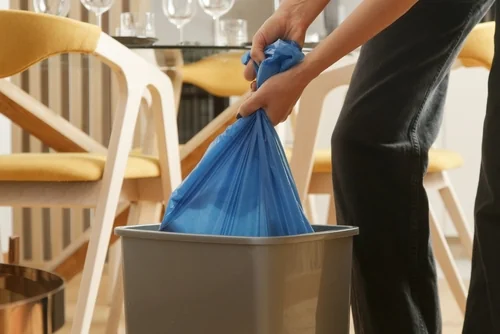Overview:
HoldOn, a manufacturer of trash bags, claimed that its bags were biodegradable and greener than other bags. Are these claims garbage?
HoldON NAD Challenge
Glad Products Company, makers of various lines of garbage bags, challenged advertising claims made by HoldOn, another garbage bag manufacturer, in the BBB National Programs, National Advertising Division (NAD). Traditional trash bags are not compostable or biodegradable. HoldOn trash bags are certified by the Biodegradable Products Institute and TUV Austria as compostable in home and commercial settings. Consumers looking to purchase fully biodegradable and environmentally friendly trash bags may be influenced by these claims.
The claims Glad challenged related to the actual breakdown of the bags. In composting environments, and only in composting environments, the bags do break down. But when the bags are used to replace conventional bags and end up in landfills, they do not break down to the degree advertised. The biodegradable plastics market is expected to grow to $, and as consumers continue to make decisions based on environmental, social, and governance (ESG) claims, how the NAD weighs in is instructive to advertisers and marketers.
NAD Decision
The NAD found insufficient evidence to support HoldON’s broader environmental benefits claims, and ruled that the advertising conveyed the message that the bags were not plastic. The NAD ruled that HoldON must:
- Clearly and conspicuously disclose the circumstances in which the bag would degrade, compost, or “break down.”
- Avoid conveying messages of general environmental benefits.
- Avoid conveying the message that HoldOn bags are not plastic.
As innovators bring environmentally friendly products to the market, the advertising and marketing claims must be properly substantiated to avoid costly challenges. MMR Strategy Group conducts reliable claim substantiation surveys that withstand regulatory challenges. Contact MMR if you require claim substantiation for an ESG claim.
